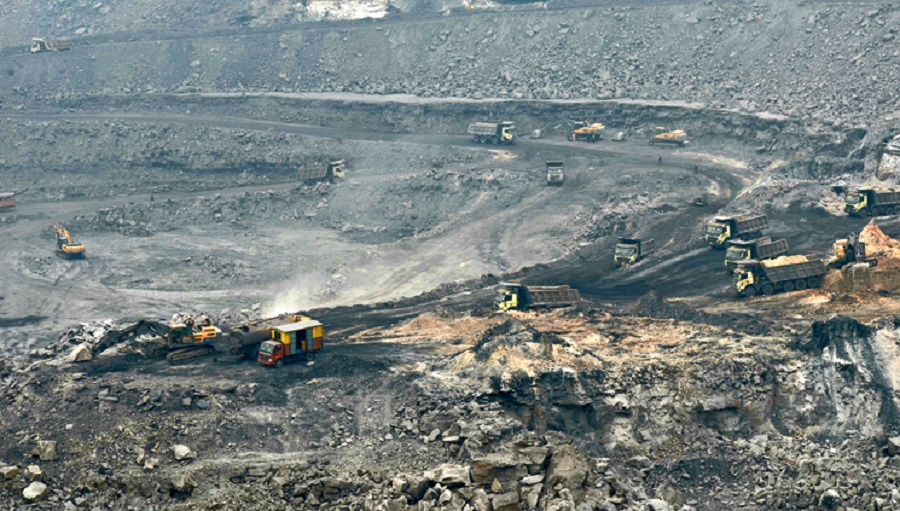The Supreme Court has observed that if an area falls under an eco-sensitive zone then neither the Centre nor the state government will have the right to mine it.
The remark was made on Wednesday by the top court which was hearing Jharkhand government's pleas challenging the Centre's decision to auction coal blocks for commercial mining.
The court said prima facie, the Union government was entitled to auction coal blocks in the state. However, it said that it may send some experts to find out if the areas in question are eco-sensitive or not.
A bench headed by Chief Justice S.A. Bobde asked the Centre to file an affidavit within a week on whether the areas in question were eco-sensitive zones or not.
During the hearing, the bench observed, “At the moment we are not dealing with whether the Centre or the Jharkhand government has the right to do mining. If the area is eco-sensitive then no one, either the Centre or the state government, has the right to mine.”
It said, “We are not experts to decide whether the areas are eco-sensitive or not. What we will do is send some experts to say on this,” .
At the outset, senior advocate F.S. Nariman, appearing for Jharkhand, said auction of coal blocks can be postponed for a few months and the suit that had been filed under Article 131 be decided.
Senior advocate A.M. Singhvi, also appearing for the state government, said that the state had a large population of tribal people and 30 per cent of the area were eco-sensitive forests.
“I am challenging the coal auction as it is against the public interest and not the Mines and Minerals (Development and Regulation) Act (MMDR Act),” he said.
The bench asked Singhvi how he could say that the MMDR Act would not apply in the state on the ground that it was a scheduled area. “Central government is prima facie entitled to auction the coal blocks,” the bench observed, and asked Singhvi under which law mining leases in eco-sensitive areas were disallowed.
Singhvi said mining could be done in small areas far away from eco-sensitive zones. To this, the bench asked him to show evidence that the areas in questions were eco-sensitive zones.
Nariman then referred to various areas, including Hazaribagh Wildlife Sanctuary, and termed them eco-sensitive zones. The bench then wanted to know what the state had been doing in these areas.
Attorney General K.K. Venugopal, appearing for the Centre, said, “Just 14 days before a suit is filed, they had filed a writ petition asking us to roll back auction of coal mines in Jharkhand for six to nine months or unless until the global investment climate improves, so that Jharkhand maximizes returns on natural resources.”
The bench said it was focussing on the status of the area. “Our experience shows that people want to exploit eco-sensitive zones and if the areas are eco-sensitive then we will not allow either (state or Centre) to mine,” it said, adding that as the courts may send some experts to ascertain whether they were eco-sensitive areas or not.
Venugopal said that they weren’t eco-sensitive areas, and added that they proposed to file an affidavit in this regard. The bench then adjourned the hearing for two weeks and asked the Centre to file an affidavit within a week on the issue and permitted the state government to file a rejoinder thereafter.
On July 14, the top court had issued notice to the Centre on Jharkhand government's pleas challenging its decision to auction coal blocks for commercial mining.
The state government alleged that the announcement was made by the Centre "unilaterally" without consulting it. Jharkhand has claimed that it is "highly inappropriate" for the Centre to conduct an auction at this time of COVID-19 pandemic as all the machinery of the state and the Centre are to be enjoined to "alleviate the problems of citizens" caused due to the deadly virus.
"The defendant (Centre) has announced the impugned auction unilaterally without consultation with the plaintiff (Jharkhand). The plaintiff state is the owner of the mines and minerals situated within the territory of the plaintiff," said the suit.
Referring to the Fifth Schedule to the Constitution, which deals with administration and control of Scheduled Areas and Scheduled Tribes, it said that six of the nine coal blocks in Jharkhand - Chakla, Chitarpur, North Dhadu, Rajhara North, Seregarha and Urma Paharitola -- which have been put up for auction fall within the Fifth Schedule areas.
It said out of the total population of 3,29,88,134 in Jharkhand, 1,60,10,448 reside in Scheduled Areas and the impugned action impinges the rights of the indigenous people of the state.










